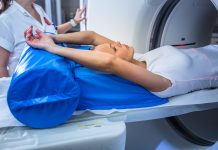Innovative technologies have the power to entirely transform the NHS, mitigating the workforce challenges that it faces and transforming the patient experience, whilst improving outcomes, Justin Hall, Vice President and General Manager at iRhythm, discusses here
Innovation has never been more in the forefront of minds within the UK healthcare space. Just last year we witnessed the launch of the NHS Long Term Plan – designed to introduce more digitally-enabled care into the system – as well as a £250 million government investment in a new National Artificial Intelligence Lab.
Against this backdrop, the health tech industry is unsurprisingly booming, with digital technologies – that have the potential to improve the healthcare system as a whole – being developed every day.
But, whilst there is no shortage of innovation, the challenge often lies in bringing these new technologies – which will benefit both patients and medical professionals – to market. The sad reality is that many of the most cutting-edge and valuable solutions are still a long way away from becoming a reality within the NHS.
This is something that the government’s Accelerated Access Scheme hopes to change. Establishing a new fast-track route into the NHS for ‘breakthrough’ medicines and technologies, this programme aims to speed up how long it takes for patients to benefit from ground-breaking innovation. By reducing the time it takes to negotiate the evaluation and financial approvals process, it could mean that the products with the greatest potential to change lives are available to the general public up to four years earlier – a huge improvement, which could make the world of difference for patients and medical professionals alike.
Less time spent on administration = more time spent on patient care
The quicker deployment of the most innovative technologies on the market, using the Accelerated Access Scheme, could result in huge benefits for both doctors and patients.
For the latter, modern technologies which could be used to combat a vast range of illnesses would be more readily available to everyone, regardless of where they are based. In fact, under the Accelerated Access Scheme, regional variation in terms of access to different – and sometimes superior – medical treatment would hopefully become a thing of the past and every patient would be able to easily and effectively access any medical care that they need.
And for those delivering the care, the scheme would cut through the excessive bureaucracy which can accompany the adoption of new technologies, enabling doctors to utilise the most innovative solutions and, ultimately deliver the best possible outcomes for their patients.
A recent report from MIT Technology Review also highlighted how AI could help to combat ‘burn out’ within the medical sector. Increased administrative tasks, alongside the need to see more patients, has resulted in many medical professionals working longer hours than ever before. Many are feeling the pressure associated with constantly having to perform to the highest standard. After all, if a GP misdiagnoses their patients, lives could be on the line. According to the review; AI could hugely help with this, preventing burnout in 79% of cases and rebalancing the workload in favour of care-giving duties.
Future-proofing the NHS
At a recent conference hosted by the Health Tech Alliance, the Health and Social Care Secretary Matt Hancock stressed the importance of increasing the wide-spread adoption of transformational technologies. He highlighted that, AI and many other modern technologies within the NHS are not a distant dream anymore but a modern reality. Yet, it currently takes 17 years on average to get a new medical device from clinical trial to adoption. Lack of appropriate and equal distribution is one consideration that is slowing the entire adoption process down. This is where the Accelerated Access Scheme comes in.
However, once the technology is distributed equally, it is important that the NHS is ready to use it. Therefore, a certain element of upskilling and digital training is required – as well as personal and professional buy-in from the medical professionals who will be utilising the new equipment each day – in order to ensure that NHS organisations are able to reap the benefits.
A new revolution will help the NHS succeed
The fact is that modern technologies should not be seen as ‘nice to have’ in the healthcare sector. Having the best innovations is actually a necessity. And allowing people to easily access these innovations should be a priority moving forward.
The Accelerated Access Scheme could help to bring technologies that could have a real impact into our National Health Service. This would enable patients to receive the best care possible – regardless of where they live. It could also help to relieve some of the strain medical practitioners are currently facing, enabling them to spend more time doing caring for patients. It could unlock the door to a digitally empowered age in medicine and the next chapter in NHS history.






























